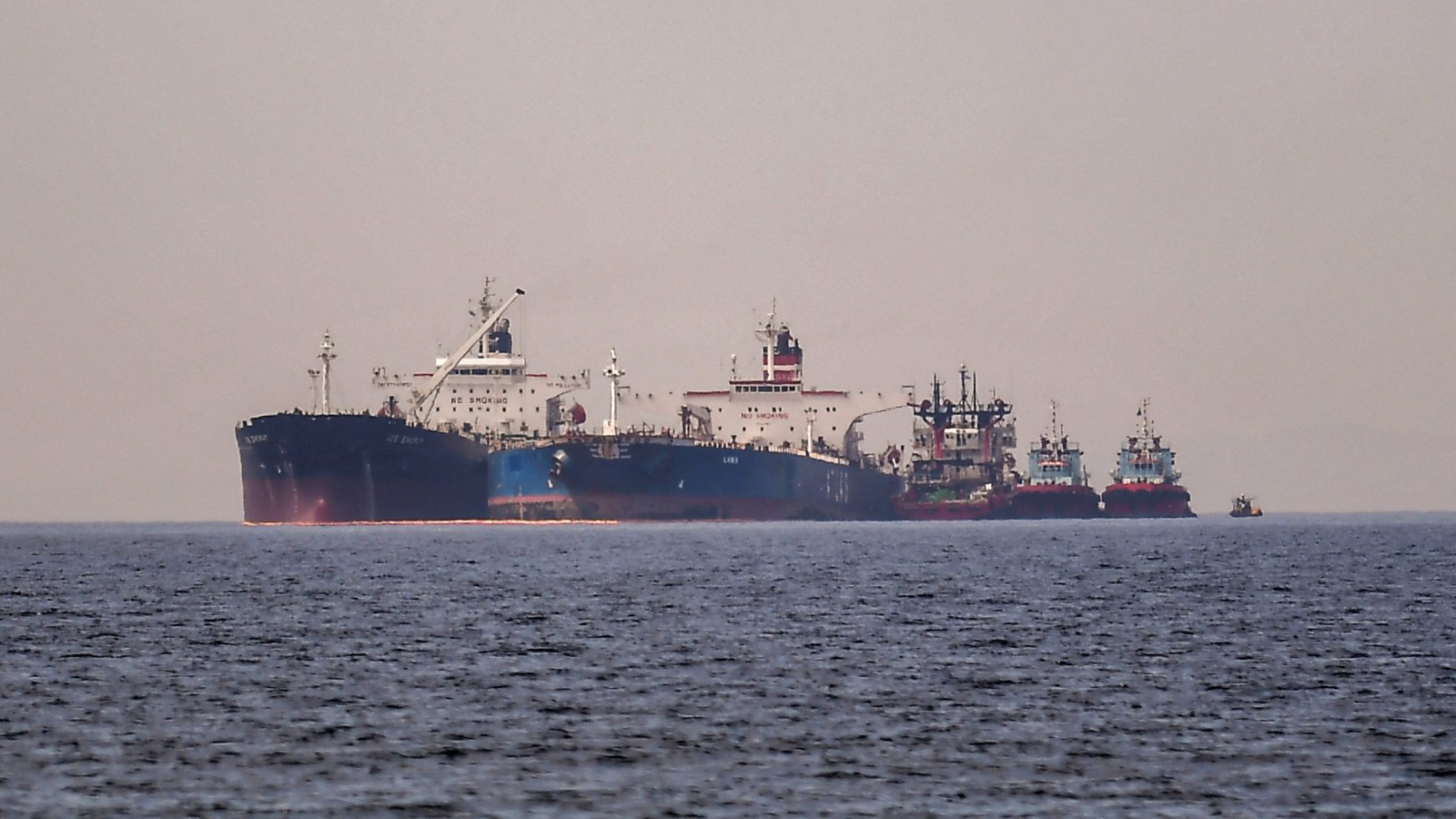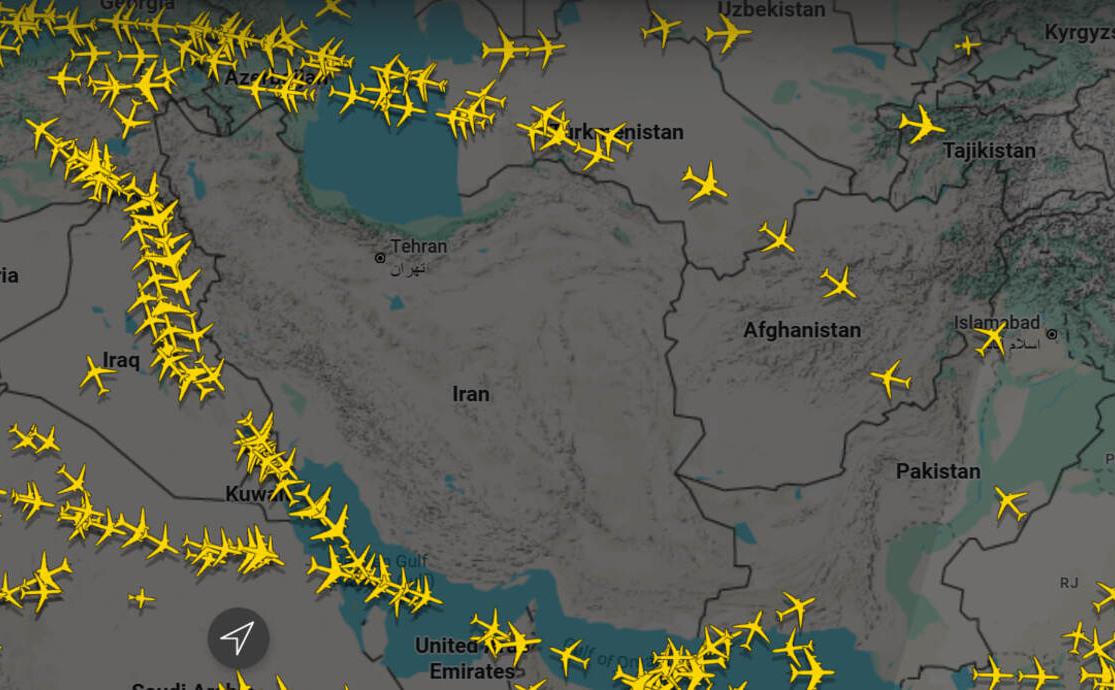Despite all the sanctions and efforts to limit Russia's ability to finance the war, we are deliberately or unintentionally failing to block the primary source of money for the destruction of Ukraine: oil. This concerns the so-called "shadow fleet," which has become a waterfall of financial prosperity for the Russian government and military.
More than a year after Western countries implemented a price cap of $60 for Russian oil, the main condition for its enforcement has essentially ceased to function. Almost all oil is now transported by tankers of the "shadow fleet," which rely on Western insurance.
A study by NRC in March identified a shadow fleet of approximately 1,600 tankers, many of which are old, in poor condition, and inadequately insured. These vessels transport crude oil to countries that have not imposed sanctions against Russia and attempt to refuel in North Sea ports on their way back, partly to take advantage of lower fuel prices.
The shadow fleet has enabled Russia to create a parallel shipping structure capable of withstanding changing tactics and the focus of Western sanctions, with hundreds of tankers under opaque ownership using complex routes.
The maritime AI company Windward estimates that this fleet has grown to 1,800 vessels over the past year. There are an estimated 12,300 oil tankers worldwide, meaning that Russia controls nearly 15% of the global oil tanker fleet.
Here are some key figures:
-
Russia's federal revenues reached a record $320 billion in 2023 and are expected to grow even further. Oil exports amounted to 234.3 million tons, with 82% of these exports going to the Asia-Pacific region.
-
According to some analysts, about one-third of this money was spent on the war in Ukraine last year, with a significant portion expected to finance the conflict in 2024.
-
The role of oil and gas revenues in Russia's budget in 2023 was 32%, with about 80% of the sector's income coming from oil.
-
KSE estimates Russia's oil sales revenues at $183 billion in 2023, with expectations of a decrease to $145 billion and $139 billion in 2024 and 2025, respectively. (However, Russia is working to prevent this decline).
-
Oil and gas budget revenues for Russia in 2023 decreased to $102.8 billion, compared to $169.5 billion in 2022.
-
According to Rosstat data and estimates from the Central Bank of Russia, the oil and gas sector accounted for about 27-28% of Russia's GDP in 2023.
-
Meanwhile, according to a report by the Russian Academy of Sciences' Institute of Energy Research, the share of the oil sector (extraction, refining, and export of oil) in Russia's GDP in recent years has been estimated in the range of 15-20%.
-
Interestingly, in eight regions of Russia, nearly half of the economy is based on oil and gas extraction. This means that oil exports are one of the key factors filling Russia's budget, making it the largest sector of the Russian economy.
The only revenue source contributing more to Russia's budget is VAT, which accounts for about 30-35%, compared to 32% from the oil and gas sector or 24% from the oil sector alone.
Today, we see that Russia has learned to successfully bypass sanctions, has formed a shadow fleet, and manages it effectively.
News from 2024 already sounds like this:
-
"Russia's oil and gas revenues in February increased by more than 80% compared to last year and exceeded $10 billion."
-
"Russia received unprecedented profits from oil exports: What does the U.S. have to do with it?"
According to an analysis by the Centre for Research on Energy and Clean Air (CREA), last year, the United States became the largest buyer of petroleum products from India made from Russian oil, spending over $1.3 billion on them.
-
"Approximately 1/8 of Russia's defense budget consists of taxes from oil and gas purchased by European Union countries. Therefore, Europe is sponsoring the war in Ukraine."
-
"In 2023, Britain purchased petroleum products made from Russian oil for £2.2 billion, despite its own sanctions." This information became known in early March 2024.
Sanctions are significantly lagging behind Russia's schemes and innovations. The most important role in this is played by a copied know-how from Iran — the "shadow fleet."
Matthew Wright, a senior freight analyst at Kpler, classifies the ships transporting Russian oil into two categories: "grey ships" and "dark ships."
-
Grey ships were sold after the invasion — mainly by owners in Europe to firms in the Middle East and Asia, who were previously active in the tanker market.
-
Dark ships, on the other hand, are veterans of Iran's and Venezuela's campaigns to bypass Western sanctions, which have recently switched to transporting Russian oil.
Every month, an additional 25 to 35 ships are sold to the shadow fleet. As a result, two questions arise:
-
Who is behind the shadow fleet?
-
How can it be stopped?
So, who is behind the fleet? Six little-known companies, some of which were established less than a year ago, are involved in exporting about 1.5 million barrels of oil per day from Russia, Bloomberg reports. This is enough to cover the total demand of Britain or Italy, meaning these firms have become some of the largest resource traders in the world.
Here are the companies:
-
Nord Axis Ltd, which in December was purchasing over half a million barrels of Russian oil per day, specifically from "Rosneft." The company was registered in Hong Kong in February last year, and in the summer, it acquired a stake in the "Rosneft" project called "Vostok Oil" from global trader Trafigura.
-
Concept Oil Services (Hong Kong);
-
Coral Energy (Dubai);
-
QR Trading (Dubai);
-
Bellatrix Energy (Hong Kong).
Documents from Nord Axis show that an Azerbaijani citizen, Adalat Kazimli, became the owner of all the company’s common shares in May last year, and then in June, he transferred them to a holding company in Dubai. Kazimli was considered the director of Nord Axis for a month, from May to June 2022. After Kazimli’s resignation, the director of the company was listed as a lawyer from Istanbul, Murat Sayin.
Documents dated March and August 2022 show that Kazimli had a power of attorney to act on behalf of Coral in Turkey, and he signed documents as a representative of the company. They also show that Sayin was a lawyer working on behalf of Coral in Turkish business. But the formal organizer of this oil trading empire is an Azerbaijani citizen, Etibar Eyubov. Is he the main person? No. The main figure is Igor Ivanovich Sechin—a Russian top manager and the president of the oil and gas company Rosneft. American diplomats in Moscow unofficially consider him the second most powerful person in Russia after Putin.
Eyubov is a nominal and project manager who has repeatedly appeared publicly with Sechin. But what’s interesting is that neither Eyubov nor Garaev has been sanctioned yet.
The main question is, what to do with the shadow fleet? As we can see, the shadow fleet is growing. Russia’s income from oil exports is increasing. The aggression against Ukraine continues. Private companies in the U.S., the EU, and the UK continue to buy petroleum products made from Russian oil.
Ukraine needs to set an example by imposing sanctions not only against known shadow fleet vessels but also against all companies that own, manage, and use their services. But most importantly, sanctions should be imposed against the mentioned nominees—managers.
Yes, Ukrainian sanctions will not have a significant direct impact. But how can we demand that our partners stop supplying the aggressor with petrodollars if we ourselves turn a blind eye to things that are obvious to everyone?
Some countries have already started imposing sanctions. For instance, 53 ships (out of nearly 1800) connected to Russian trade have already been sanctioned. Many of them are located off the coasts of Russia, China, and Turkey.
On June 13, the United Kingdom announced wide-ranging sanctions against the Russian Federation. For the first time, Russia's so-called shadow fleet vessels and the company Ingosstrakh—one of the leading insurers of tankers illegally transporting Russian oil and petroleum products—fell under London’s restrictive measures.
Scholz announced plans for sanctions against the shadow fleet. Meanwhile, Ukraine remains silent…
The next step is the creation of an Oil Ramstein—a coalition of partners aimed at limiting Russia's ability to bypass sanctions.
Sanctions should be applied:
-
To the beneficiaries and managers of the companies that own and operate the shadow fleet, as well as their management.
-
To the ports that accept shadow fleet vessels. This is a more complex process, but it is necessary.
-
To the buyers of Russian oil.
The world fears high oil prices due to an embargo on Russian oil. But no one is proposing an embargo. Russia can sell oil, but only within the limits agreed upon by the coalition—no higher than $60 per barrel. Decisions need to be made today. It's hard to believe that someone is artificially delaying the process.



















